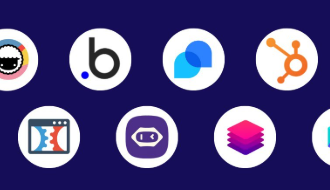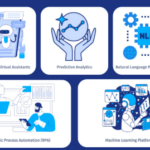In this article, I will discuss the How to Become a Tech Freelancer. Tech freelancing provides career control, global opportunities, and flexibility in one’s schedule.
This guide is designed to help you, whether you are a developer, a designer, or an IT professional, recognize and hone skills, cultivate a portfolio, learn to draw in clients, and thrive as a business and a freelancer in this digital age.
About Tech Freelancer
A tech freelancer is a self-employed individual who provides technical services like web development, software engineering, application development, and IT services on a contract or project basis.

Unlike full-timers, tech freelancers juggle multiple clients, often working remotely. They have the autonomy to select their projects, establish their rates, and determine their schedules.
Such flexibility broadens regions of employment for freelancers, enables them to acquire new skills on a regular basis and pursue a self-directed career path in the ever-changing world of technology.
How to Become a Tech Freelancer

Example: Starting a Freelance Web Development Career on Upwork
Define Your Service
- Provide responsive website design using HTML/CSS and JS.
- Create a short pitch: “I build fast, mobile-friendly websites for small businesses.”
Build a Portfolio
- Create 2–3 sample projects (a bakery site, a portfolio page, a blog layout).
- Host them on GitHub Pages or Netlify.
- Add portfolio screenshots and links in a section.
Create an Upwork Profile
- Proceed to Upwork.

- Complete your profile with a bio, skills, and an hourly rate (start with $15–25/hour).
- Add your portfolio and include tags such as “web developer,” “responsive design,” and “JavaScript.”
Start Applying for Jobs
- Look for beginner websites like “fix my website 1st page layout” or “build me a landing page.”
- Write personalized proposals and explain your approach to the client’s problem.
Deliver Great Work & Collect Reviews
- Communicate clearly, meet deadlines, and exceed expectations.
- Ask for feedback and work on improving your rating.
Scale Up
- Increase your rates as you gain more experience.
- Focus on e-commerce, SEO, or React development.
Identify Your Skills and Niche
As a technology freelancer, you are required to succeed in a particular area. First, think of your business skills. These can be in the form of web application development and mobile application development, data science, digital design, or cybersecurity. Consider what you are good at, what your experiences are, and what you are interested in.
After that, pick a niche like e-commerce websites, fintech apps, or even WordPress sites that match your competencies and have a steady demand for work in the market. Your proficiency in a specific field enables you to get better pay. Earning an expert title in a particular domain enables you to market yourself and win clients.
Build Your Portfolio
Any portfolio you build should be able to properly showcase your skills in order to attract clients, and this starts with having a strong portfolio. Begin working on sample projects, contributing to freelance projects on mini freelance websites, or open-source projects.
Make sure to describe every project, the technologies implemented, and the impact it had in a clear succinct manner and showcase your best work.
You can show your work using GitHub, Behance, or a personal website which helps show your work in a more professional manner. Having a well-organized portfolio aides in proving your technical abilities while building trust with potential clients seeking experts.
Learn the Business Basics
Understanding the aspects of running a business is critical to succeed as a tech freelancer. Learn the basic business-related tasks like contract creation and management, sending invoices, and bookkeeping.
Based on your experience and expenses, research industry standards and set competitive yet sustainable rates. Develop effective communication skills and be able to describe project scopes, deadlines, and expectations clearly.
Understand project management and make use of Trello or Asana. Stop viewing freelancing as a side hustle. From now on, track income, manage expenses, run bookkeeping, and practice professionalism to maintain long-term client relationships and ensure steady growth.
Deliver Quality Work and Build Reputation
Always Meet Deadlines: Complete work on schedule and develop dependability and trust.
Regularly Update Clients And Respond Promptly: Always respond to any questions clients may have. In return, give scheduled updates on work being done.
Make Sure To Deliver Work That Has Been Properly Tested: This can be achieved by following industry best practices to receive successful output.
Ask For Reviews From Clients: Make sure to ask clients who feel satisfied with the services so that your credibility may be enhanced.
Act Fix Challenges Calmly: No matter the issue, always stay composed and respectful while addressing it.
Exceed Clients’ Expectations: Offering some additional services will help you leave a good impression.
Continuously Improve Your Skills: This will help in making certain that your client’s needs are met.
Scale Your Freelance Career
After establishing a strong base, you can now scale your freelancing career. Increase your rates as you gain more experience and value. Go after clients that are likely to bring in high value, more stable long-term contracts, or even full-time retention. To improve efficiency, use automation to streamline workflows and increase productivity.
If you are overwhelmed with work, consider outsourcing simpler tasks to other freelancers. Create a personal brand by publishing content, public speaking, or teaching. Always prioritize quality and customer satisfaction as you scale to ensure enduring reputation and achievement in the tech freelancing market.
Pros & Cons
| Pros | Cons |
|---|---|
| Flexible work schedule | Inconsistent income |
| Freedom to choose projects | No employee benefits (healthcare, retirement) |
| Ability to work remotely | Requires self-discipline and time management |
| Potential for high earnings | Need to handle taxes and contracts yourself |
| Opportunity to work with global clients | Can be isolating or lonely at times |
| Control over your career growth | Must constantly find new clients |
Conclusion
Working as a freelancer in technology grants a person the independence, adaptability, and opportunity to develop professionally which are prerequisites for any modern career. Understanding your skills, narrowing down your niche, creating a powerful portfolio, and mastering the basics of a tech business can have you attaining the desired success.
Excelling in client relationship management, providing top-notch services, and strategic scaling will help you do well in freelancing. If you maintain these principles, along with guidance and refinement, you can evolve freelancing into a fulfilling long-term technical career.













